20 - 23 June, 2023, Costanta
2nd Cyber ETEE Summer School
Securing Europe's Digital Future: Exploring the Intersection of Cyber Power Politics, Diplomacy, and Intelligence
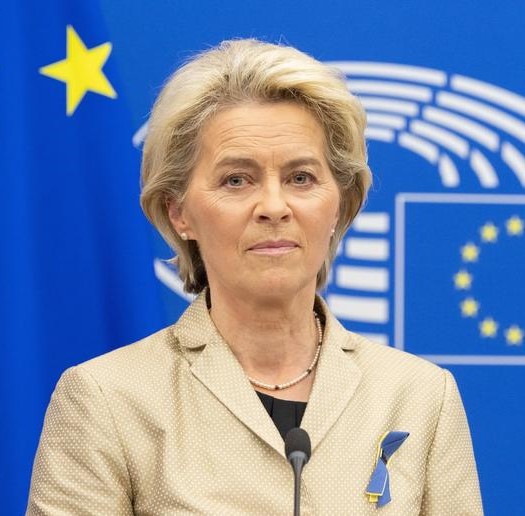
"If everything is connected, everything can be hacked. Given that resources are scarce, we have to bundle our forces. And we should not just be satisfied to address the cyber threat, but also strive to become a leader in cybersecurity."
Ursula von der Leyen
About The Event
The Cyber ETEE Summer School, organized by the Maritime University of Constanta under the auspices of the European Defence and Security College, aims to address the theme of “Securing Europe’s Digital Future: Exploring the Intersection of Cyber Power Politics, Diplomacy, and Intelligence.” This event serves as a platform for cyber education, training, exercise, and evaluation (ETEE) in the context of cybersecurity, geopolitics, diplomacy, and intelligence.
The summer school brings together professionals, experts and faculty members from various disciplines and backgrounds to explore the complex cyber dynamics in a highly technological and interconnected Europe. It focuses on the challenges and opportunities the evolving digital landscape presents and its strategic impact on Europe’s security and defence.
Participants will engage in a series of lectures and workshops designed to enhance their understanding of the interplay between critical issues of the cyber world, with a focus on topics such as the role of EU institutions, member states, and the private sector in promoting cyber resilience, navigating the multilateral world of cyber diplomacy and deterrence, significant cyber threats and their implications for European security and defence, building resilience in cyber society through a multi-stakeholder approach, balancing surveillance and privacy concerns, and harnessing the power of emerging technologies in next-generation cybersecurity strategies.
The overarching goal of the Cyber ETEE Summer School is to foster a multidisciplinary and collaborative approach to cybersecurity, recognizing the interconnected nature of various cyber strategic and operational domains. By promoting knowledge exchange, skill development, and networking among participants, the event aims to contribute to Europe’s efforts to secure its digital future and strengthen its resilience against cyber threats.

Excellence in Cybersecurity
Pre-Course e-Learning Modules
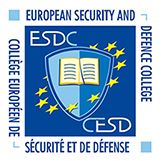
AKU 107
Awareness course on Cyber Diplomacy
Mandatory
AKU 106b
The landscape of Hybrid Threats
Optional
AKU 106d
Introduction to Hybrid Deterrence
Mandatory
AKU 106e
Hybrid Warfare
Mandatory
AKU 106f
Hybrid Threats and Maritime Security
Optional
AKU 104
Information Security Management Implementation Course
Mandatory
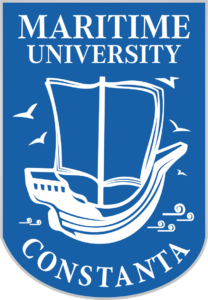
Course Schedule
Day 1 - June 20
09:00 – 09:50 Opening Ceremony
Host: Evangelos Englezakis
Training Manager, European Security and Defence College
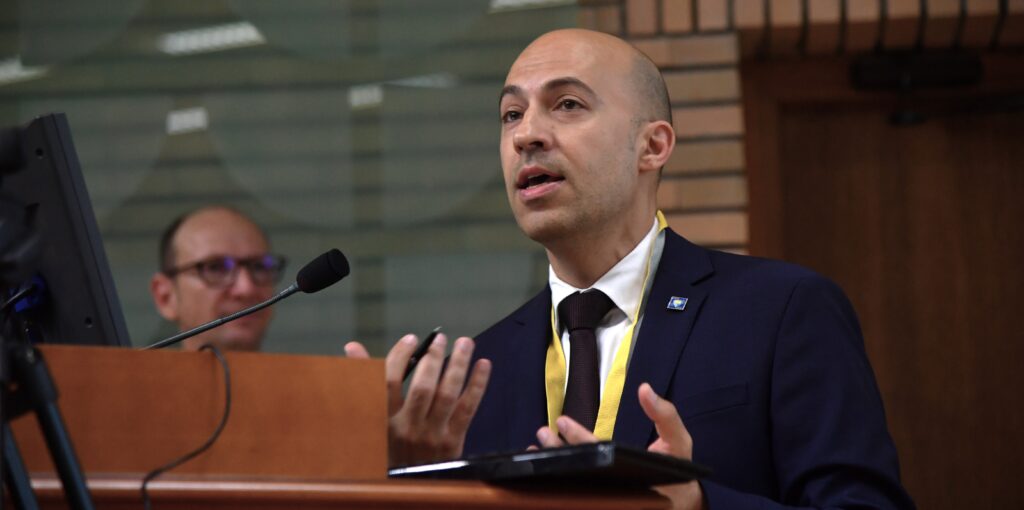
09:50 – 10:00 Coffee Break
10:00 – 11:30 Class 1. Securing Europe’s Digital Future: The Role of EU Institutions, Member States, and Private Sector in Promoting Cyber Resilience
Lecturer: Daniel Ionita
Chief Cybersecurity Services Officer, MARCYSCOE, Romania
CEO CYMED, Former Chair of HWPCI
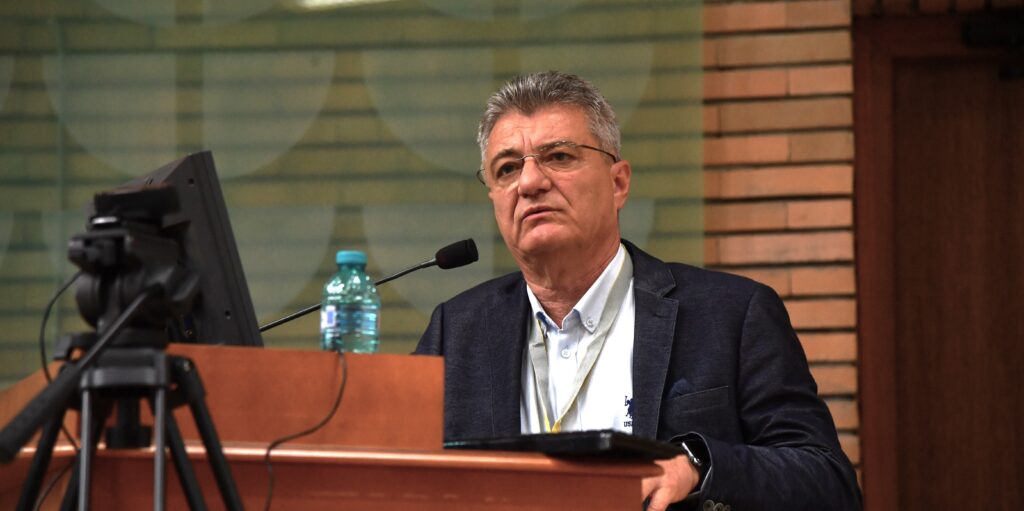
This topic focuses on the crucial role played by various stakeholders in ensuring the cyber security and resilience of Europe’s digital landscape.
During this session, participants will explore the complex dynamics between EU institutions, member states, and the private sector in addressing cyber threats and promoting cyber resilience. They will explore the policies, strategies, and initiatives put forth by EU institutions to safeguard Europe’s digital infrastructure and protect against cyber-attacks.
Also, participants will explore the importance of public-private partnerships in sharing information, expertise, and resources to mitigate cyber risks and respond effectively to cyber incidents. They will learn about best practices in cyber risk management and integrating cyber security measures into business operations.
11:30 – 11:45 Coffee Break
11:45 – 13:15 Class 2. From Cyber Diplomacy to Cyber Deterrence: Navigating the New Normal in a Multilateral World
Lecturer: John McCarthy
CEO, Oxford Integrated Systems, UK
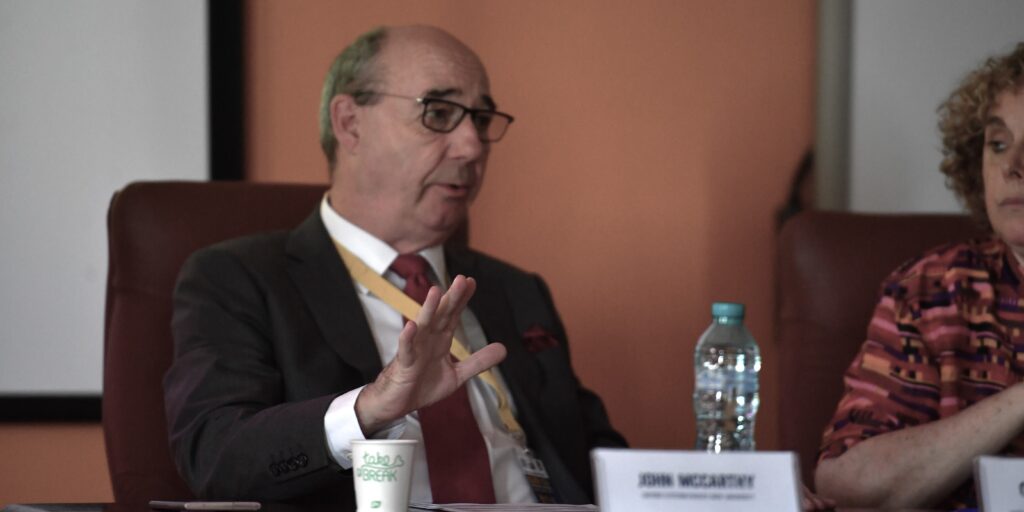
This topic explores the evolving landscape of cyber power politics and the strategic considerations in diplomacy and deterrence within a multilateral framework.
Participants will examine the role of cyber diplomacy in shaping international relations and norms in cyberspace. They will analyse the challenges of attributing cyber attacks and explore the strategies and frameworks employed in cyber deterrence.
Moreover, participants will navigate the new normal of cybersecurity in a multilateral world, considering the implications of state-sponsored cyber operations, the impact on international security, and the dynamics of cooperation and competition among nations.
Day 2 - June 21
09:00 – 10:30 Class 3. The Dark Side of Cyber Power Politics: Understanding the Threat Landscape in a Contested World
Lecturer: Tal Pavel
CEO, The Institute for Cyber Policy Studies, Israel
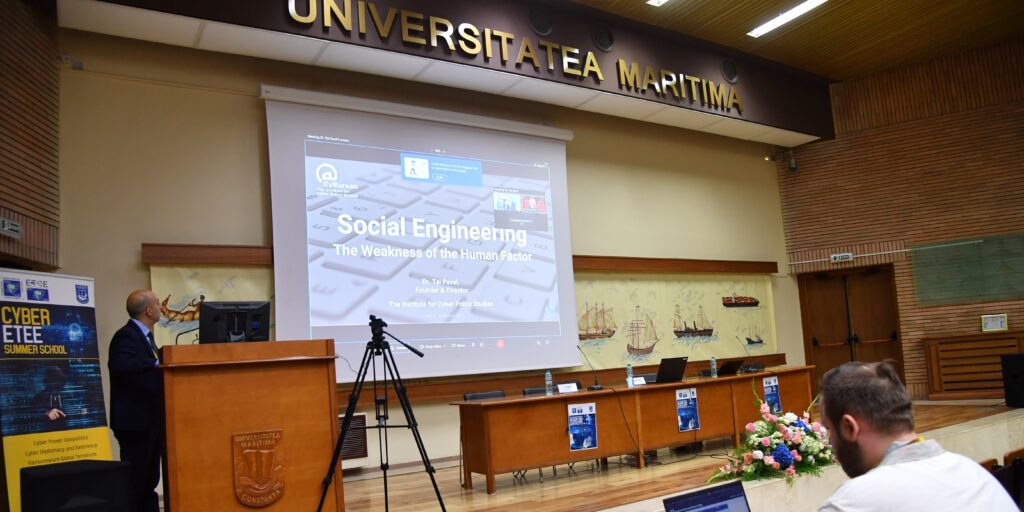
This topic delves into the ominous aspects of cyber power politics and provides a comprehensive understanding of the evolving threat landscape in a highly contested environment.
During this session, participants will explore the darker side of cyber power politics, examining the tactics and strategies employed by state and non-state actors to assert influence and achieve their objectives in cyberspace. They will analyse the increasing sophistication of cyber threats, including advanced persistent threats (APTs), state-sponsored hacking, and cyber espionage.
Moreover, participants will focus on the contested nature of the cyber landscape, where different actors compete for control, access, and dominance. They will gain insights into the geopolitical implications of cyber operations, the blurred boundaries between state and non-state actors, and the challenges of attribution and response.
10:30 – 10:45 Coffee Break
10:45 – 12:15 Class 4. Cognitive Warfare and Intercultural Strategic Communication
Lecturer: Claudine Korall
Directrice generale, Institut de Formation d’Intelligence Interculturelle – IFDII, Paris
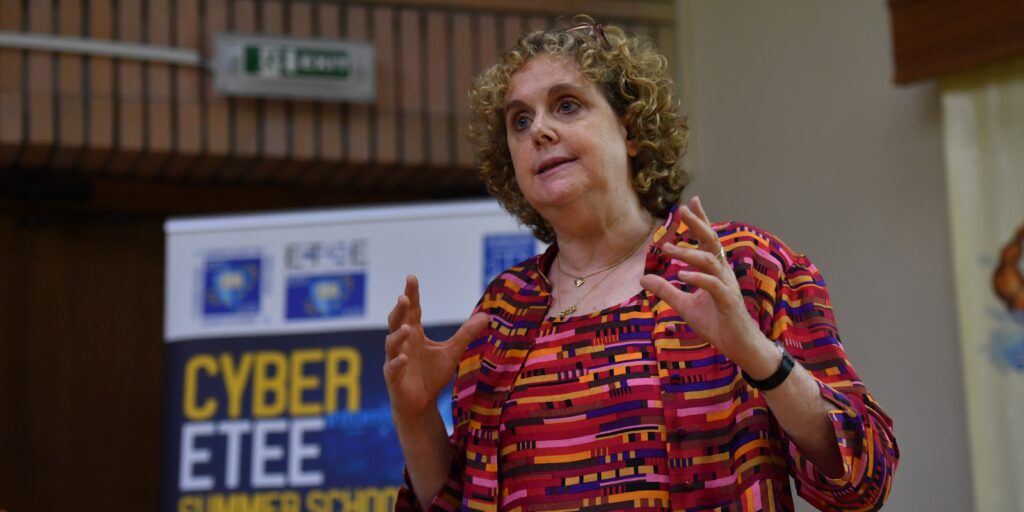
12:15 – 12:30 Coffee Break
12:30 – 14:00 Class 5. Next-Generation Cybersecurity Strategies: Harnessing the Power of Emerging Technologies
Lecturer: Daniel Dumitrescu
Chief Innovation Officer, InnovX, Romania
Director, MARCYSCOE
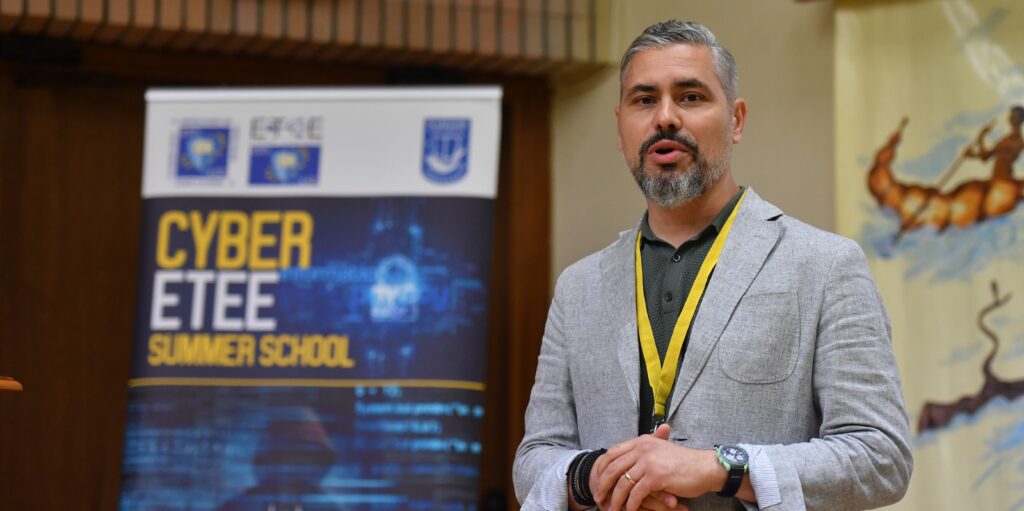
This topic focuses on the imperative of adopting innovative cybersecurity strategies that leverage the potential of emerging technologies.
During this session, participants will examine how technologies such as artificial intelligence, machine learning, blockchain, and quantum computing can be harnessed to enhance cybersecurity capabilities. The class will delve into the potential benefits and challenges associated with adopting these emerging technologies in the context of cybersecurity. Participants will explore how artificial intelligence and machine learning can enable more effective threat detection and response, how blockchain can enhance data integrity and secure transactions, and the potential impact of quantum computing on encryption and cryptographic methods.
Furthermore, participants will explore the importance of responsible innovation, robust governance frameworks, and the need for collaboration between technology experts, policymakers, and cybersecurity professionals.
Day 3 - June 22
09:00 – 10:30 Class 6. Cyber Intelligence: A Critical Tool for Enhancing National Security in the Digital Age
Lecturer: Daniel Radan
Cybersecurity Educational Programs Lead
National Cyberint Center – CYBERINT
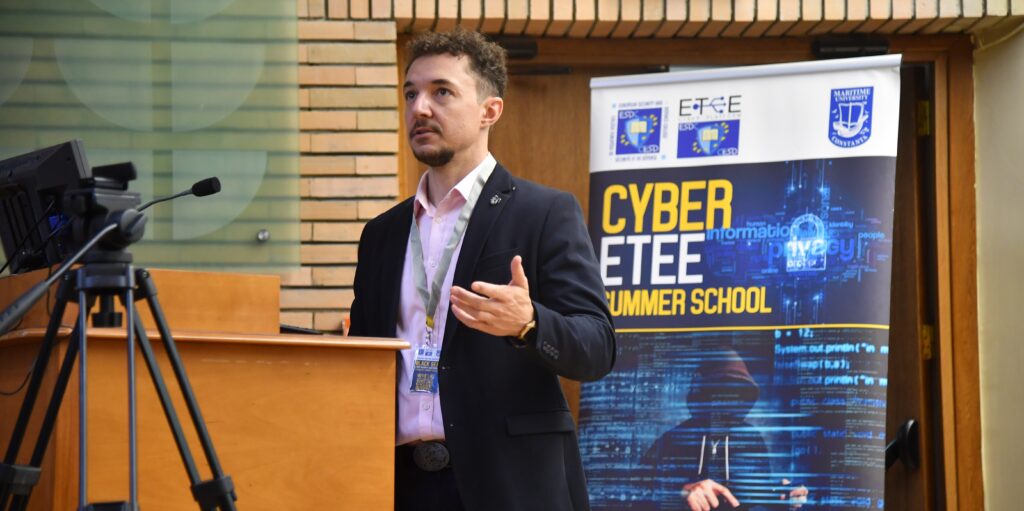
This topic focuses on the crucial role of cyber intelligence in bolstering national and European security in the rapidly evolving digital landscape.
During this session, participants will explore the significance of cyber intelligence as a critical tool for understanding and countering emerging cyber threats. They will examine the collection, analysis, and dissemination of cyber intelligence to identify and mitigate potential national and European security risks.
Participants will learn about intelligence-gathering techniques in cyber security and the importance of information sharing and collaboration among national and international intelligence agencies. Furthermore, they will gain insights into the role of cyber intelligence in supporting decision-making processes, enabling proactive threat detection, and facilitating effective incident response. Participants will also explore the challenges and ethical considerations associated with cyber intelligence, including privacy concerns and the balance between security and individual rights.
10:30 – 10:45 Coffee Break
10:45 – 12:15 Class 7. Building Resilience in Cyber Society: A Multi-Stakeholder Approach
Lecturer: Gabriela Matei
Euro-Atlantic Resilience Centre
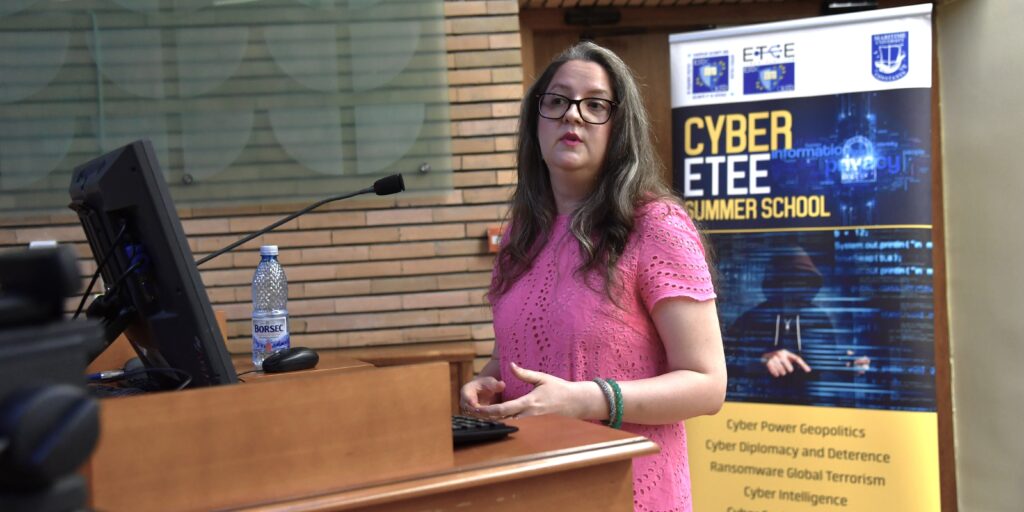
This topic focuses on the importance of a collaborative and multi-stakeholder approach in establishing resilience within a cyber society.
During this session, participants will explore the complexities of building resilience in the face of cyber threats and challenges. They will examine the interconnectedness of various stakeholders in effectively addressing and mitigating cyber risks, including government entities, private sector organizations, academia, and individuals.
Participants will also address the importance of cybersecurity awareness, education, and capacity-building programs in empowering individuals and organizations to contribute to a resilient cyber society.
12:15 – 12:30 Coffee Break
12:30 – 14:00 Class 8. Cyber Insurance and Supply Chain Risk Management: Safeguarding European Businesses
Cancelled
Day 4 - June 23
09:00 – 10:30 Class 9. Surveillance and Privacy: Balancing Security and Individual Rights in the Digital Age
Lecturer: Niculae Iancu
Vice-President of the Board of Directors, MARCYSCOE
President, I2DS2; Chief Strategy Officer, InnovX
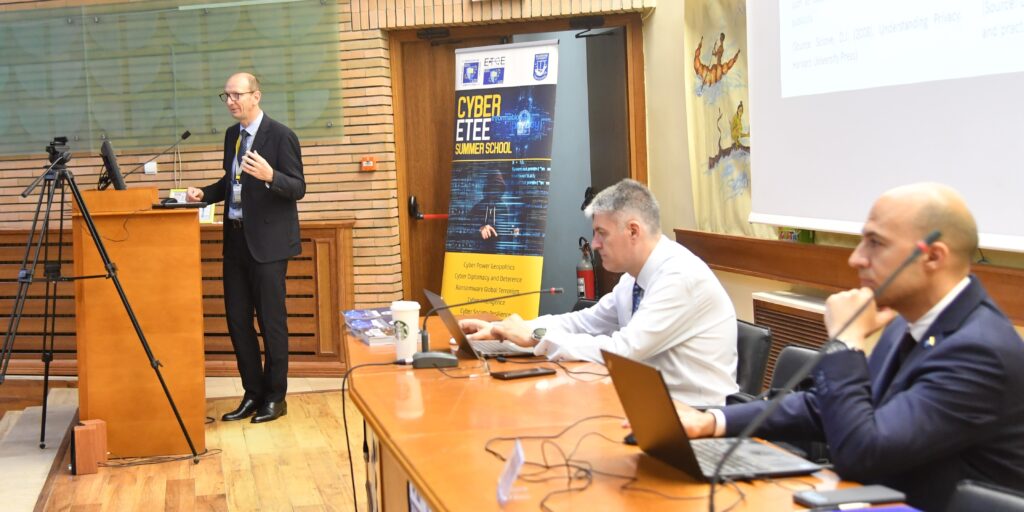
This topic focuses on the delicate balance between security measures and individual rights in the context of surveillance and privacy in the digital age.
During this session, participants will explore the challenges and complexities surrounding surveillance practices and preserving privacy rights. They will examine the implications of increasing surveillance capabilities and technologies on both national security and individual freedoms.
The class will delve into the legal and ethical considerations related to surveillance activities and engage in discussions about striking a balance between security needs and the protection of individual privacy. Moreover, participants will explore the potential consequences of unchecked surveillance on public trust, freedom of expression, and democratic values.
10:30 – 10:45 Coffee Break
10:45 – 12:15 Class 10. Cybersecurity in the Age of Global Terrorism: Defending Against the Unthinkable
Lecturer: Gabriel Raicu
Vice-Rector, Maritime University of Constanta, Romania
Director, MARCYSCOE
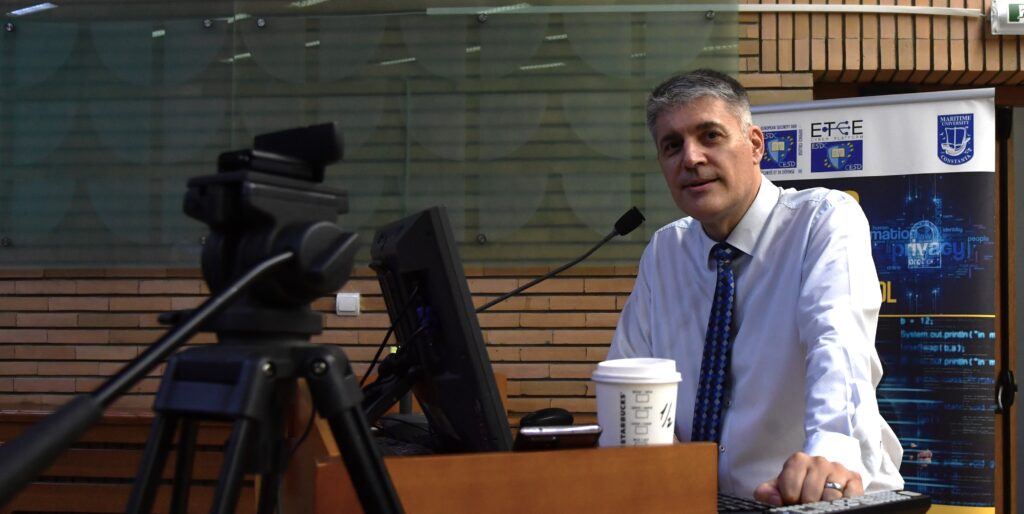
This topic focuses on the critical role of cybersecurity in countering the evolving threat of global terrorism in the digital realm.
During this session, participants will explore the intersection of cybersecurity and counterterrorism. They will examine the unique challenges posed by terrorist organizations and their exploitation of cyber space for recruitment, radicalization, financing, and operational activities.
The class will delve into the methodologies and techniques employed by terrorist groups in carrying out cyber attacks, such as hacking, data breaches, and online propaganda dissemination. Participants will analyze the potential consequences of cyber-enabled terrorism on critical infrastructure, national security, and public safety.
Furthermore, participants will learn the strategies and best practices for defending against cyber-enabled terrorism. They will explore the importance of threat intelligence, information sharing, incident response, and collaboration among various stakeholders, including government agencies, private sector organizations, and international partners.
12:15 – 12:30 Coffee Break
12:30 – 13:00 Closing Ceremony
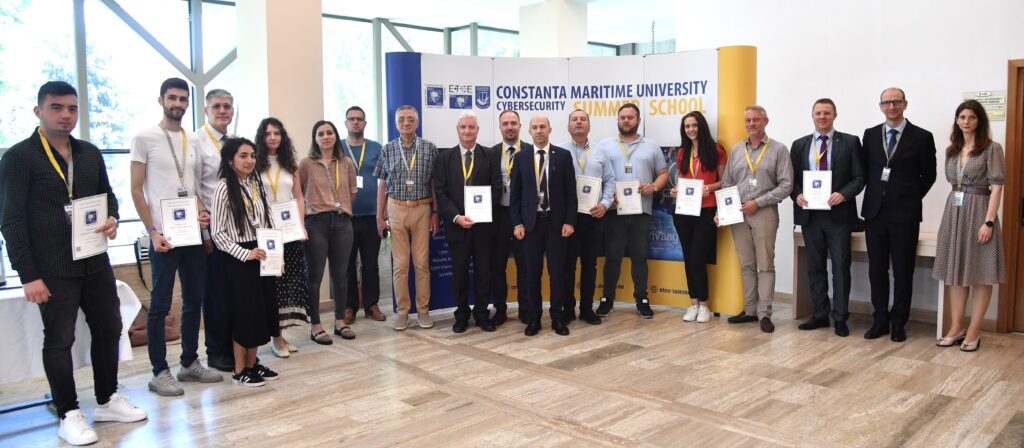
Programme Manager
Training Director
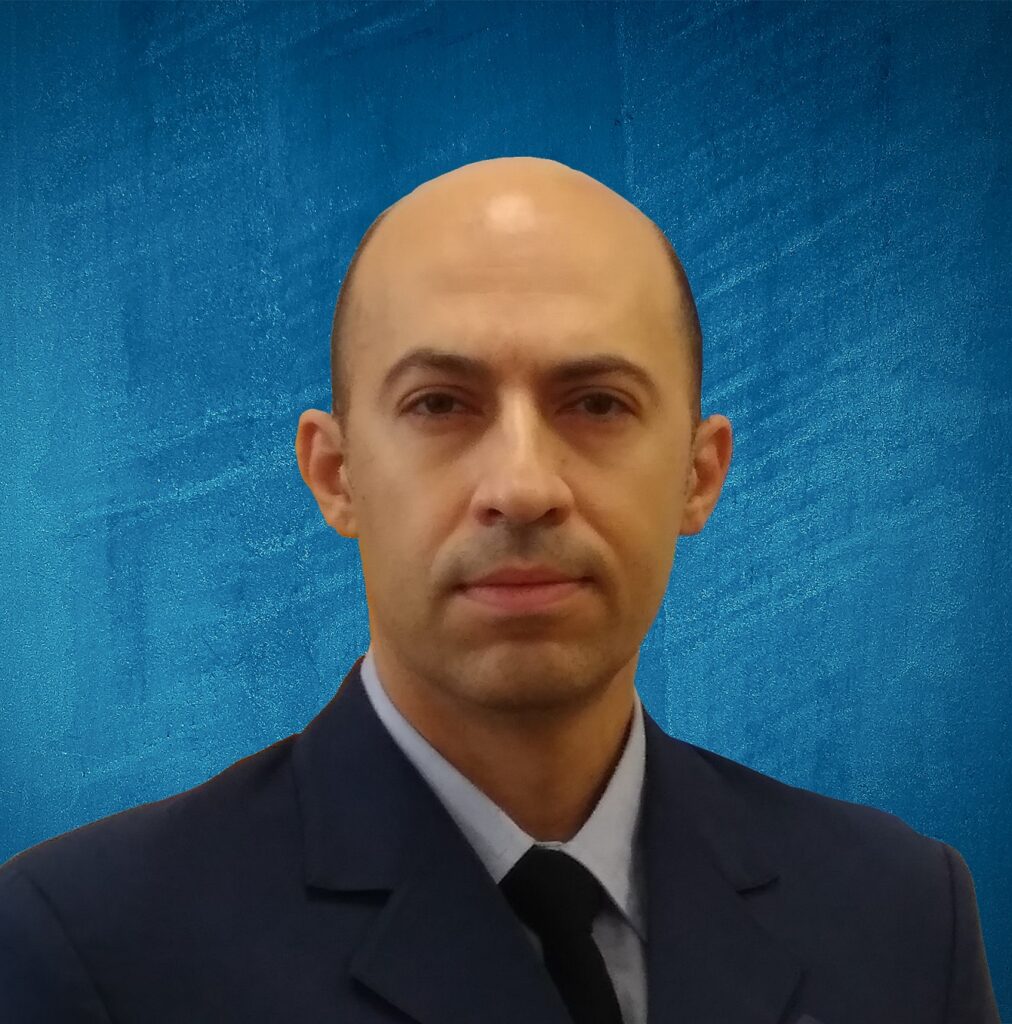
Evangelos Englezakis is a Training Manager at the European Security and Defence College. His main responsibilities are the Planning, Managing and Delivering of training courses and activities in the context of the European Union’s Common Security and Defence Policy. He also supports the ESDC Cyber ETEE platform, the development of the upcoming Certification Framework for courses provided by the Cyber ETEE, supporting the EAB Cyber configuration and contributing to conceptual and/or policy documents in the context of Cyber Defence. With a Military background in the Air Force, he is a seconded national expert from the Cyprus MoD in the domain of Cybersecurity and Defence. He has also worked at the MoD Cyber Defence department and National Security Authority. His interests are Cyber Resilience, Ethical Hacking and Cyberspace related training through Cyber ranges.
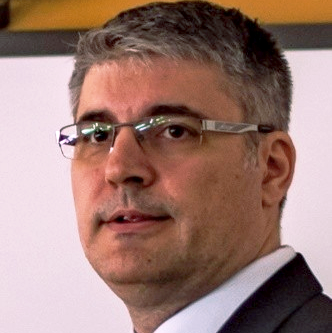
Prof Gabriel Raicu is the Vice-Rector for Research and Innovation at the Maritime University of Constanta (CMU). He spearheaded the creation of the first-ever maritime cybersecurity simulator and was instrumental in establishing the inaugural maritime sectoral CSIRT. Annually, in collaboration with the European Security and Defense College, he coordinates the BSCySeC#X conference series and the Cyber ETEE Summer School.
Prof Raicu holds a master’s degree in maritime engineering and a doctoral degree in cybernetics. His work in the domains of cybersecurity early warning with applications in the energy industry, the protection of critical maritime infrastructures, and developing cybersecurity infrastructures and logistics has been influential.
In addition to these responsibilities, he is the vice president of the Cybersecurity Cluster of Excellence (CYSCOE), an organisation that brings together businesses, public authorities, and academia to promote cybersecurity’s development and societal integration. Furthermore, he maintains leadership roles in a range of national and international cybersecurity organisations.
Meet Our Lecturers
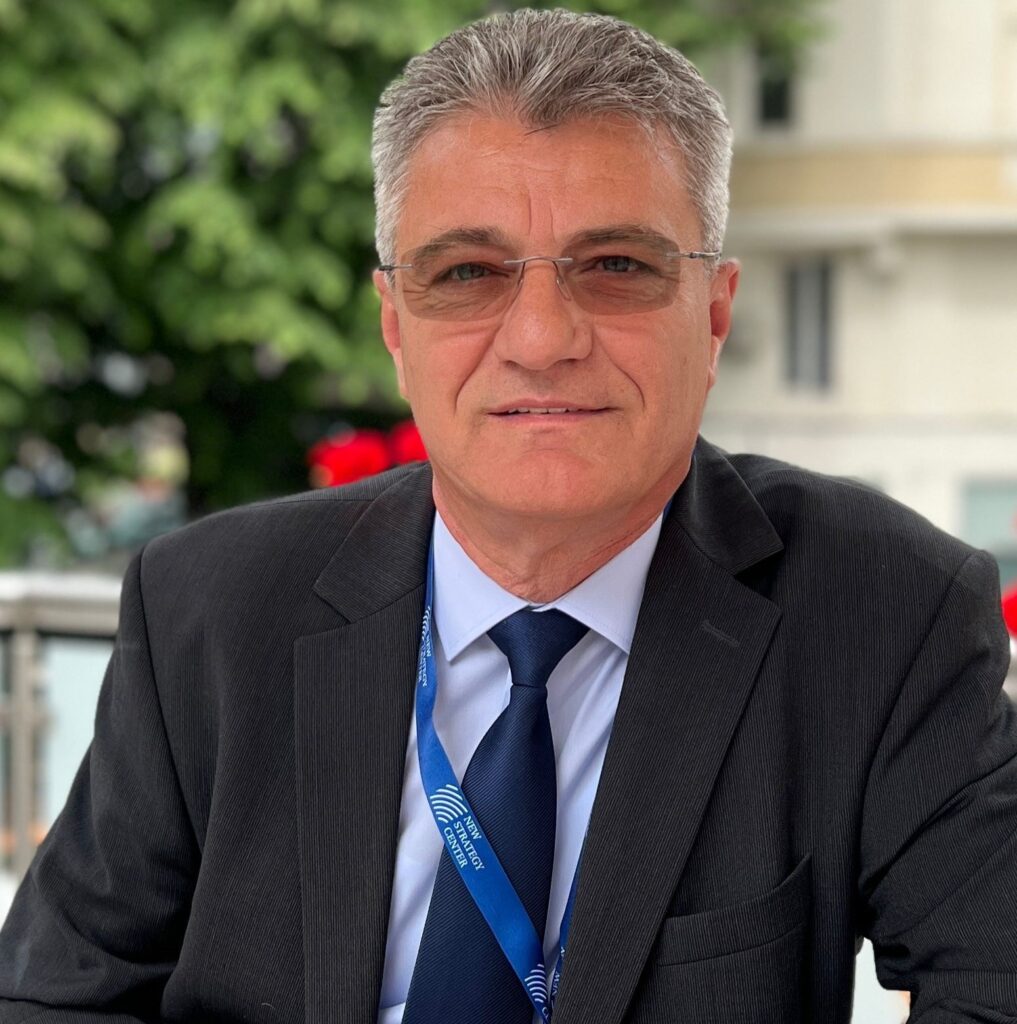
Daniel Ionita
Chief Cybersecurity Services Officer, MARCYSCOE, Romania
CEO CYMED, Former Chair of HWPCI
Mr. Daniel Ionita is an expert in cyber politics and strategies, with competences in the cybersecurity domain, acquired during the administrative and operational
development at CERT-RO, in his position as Director of the Analysis, Policy, and Cooperation Directorate (January 2012-March 2019). As an expert of Council of Europe took part in implementation of cyber projects in different countries, all over the world. During the rotating Presidency of Romania at the EU Council, he has coordinated, as Chairman, the works of the cyber European Group – Horizontal Working Party on Cyber Issues.
He is a Brigadier General, retired, and holds a BA from the Faculty of Law at the University of Constanța, as well as a Master in Education Management in Security Culture from the National Academy of Intelligence, Bucharest. Currently, he is CEO of CYMED, a cybersecurity company providing services especially in health care domain.

John McCarthy
CEO, Oxford Integrated Systems
CEO, CyberPulse
Cybersecurity Advisory Board Member, Imperial College London
Dr McCarthy is an experienced International Trainer in multiple Cyber Security areas. His expertise includes cyber security strategy development and implementation. Dr McCarthy attended numerous international events and conferences as both speaker and chairman.
He is an internationally recognised author on Cyber security and has the ability to communicate effectively with technical and business contacts at all levels, both internally and within customer and partner organisations.
Skills in:
- Cybersecurity Training
- Cybersecurity deployment and implementation
- Innovative use of technology to enhance the business’s product offering
- ICT security assessment and implementation
- Excellent report writing and presentation skills
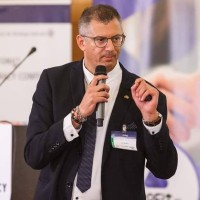
Tal Pavel
The Academic College of Tel Aviv

Claudine Korall
Directrice generale, Institut de Formation d’Intelligence Interculturelle – IFDII, Paris
Mrs. Claudine Korall is Founder of the Institut de Formation d’Intelligence Interculturelle, in France. She gives short and long term trainings and workshops for intercultural bridging in Europe, Asia and North America. This brain training enhances intercultural skills, improves the overall performance and lead to autonomous intercultural bridging. The Institut is referenced by Qualiopi and DATADOCK (ID 0077989). With i5bridging / Korall Consulting that Mrs. Korall founded over 2 decades ago, she provides intercultural and interprofessional counseling services.
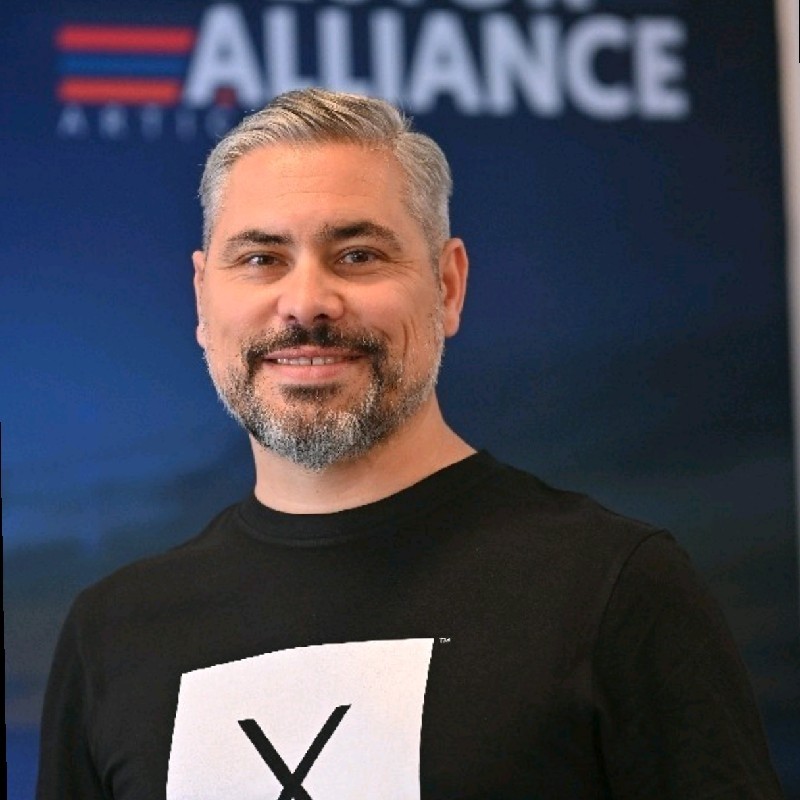
Daniel Dumitrescu is an expert in the field of innovation and risk-finance. Holding a PhD in Cybernetics & Statistics, he currently serves as the Chief Innovation Officer at InnovX, a prominent European Innovation Council (Acceleration) Partner and trusted vendor approved of NATO.

Gabriela Matei
Head of the Training Team and Emerging Disruptive Technologies Team Member, Euro-Atlantic Resilience Centre, Bucharest, Romania
Mrs. Gabriela Matei works for the Euro-Atlantic Resilience Centre in Romania, an institution under the Foreign Affairs Ministry, providing strategical expertise in order to further strengthen Romania’s own security, while contributing to the one of NATO and EU partners.
She is an expert of the emerging disruptive technologies Community of Interests and the Head of the Training Team in EARC.
Prior to this job, she worked as a strategic level analyst/analyst team leader in cybersecurity, holding a degree in electronics and communications engineering.

Mircea Scheau
Mircea-Constantin ȘCHEAU is Ph.D. in Public Order and National Security focused on economics and security, particularly cybercrime and financial transactions. Mircea-Constantin is author or co-author of three volumes, one of which – Cybercrime regarding financial transfers – received the “Victor Slăvescu Prize” awarded by the Romanian Academy, over fifty scientific articles related to management, law enforcement, critical infrastructures, information technology, artificial intelligence, defense, and cybersecurity. He has served as a lecturer in numerous international conferences, is an Honorary Associate Researcher at University of Craiova, Maritime University of Constanța, Danubius University of Galati, and is a member, inter alia, of the European Research Institute at Babeș-Bolyai University.
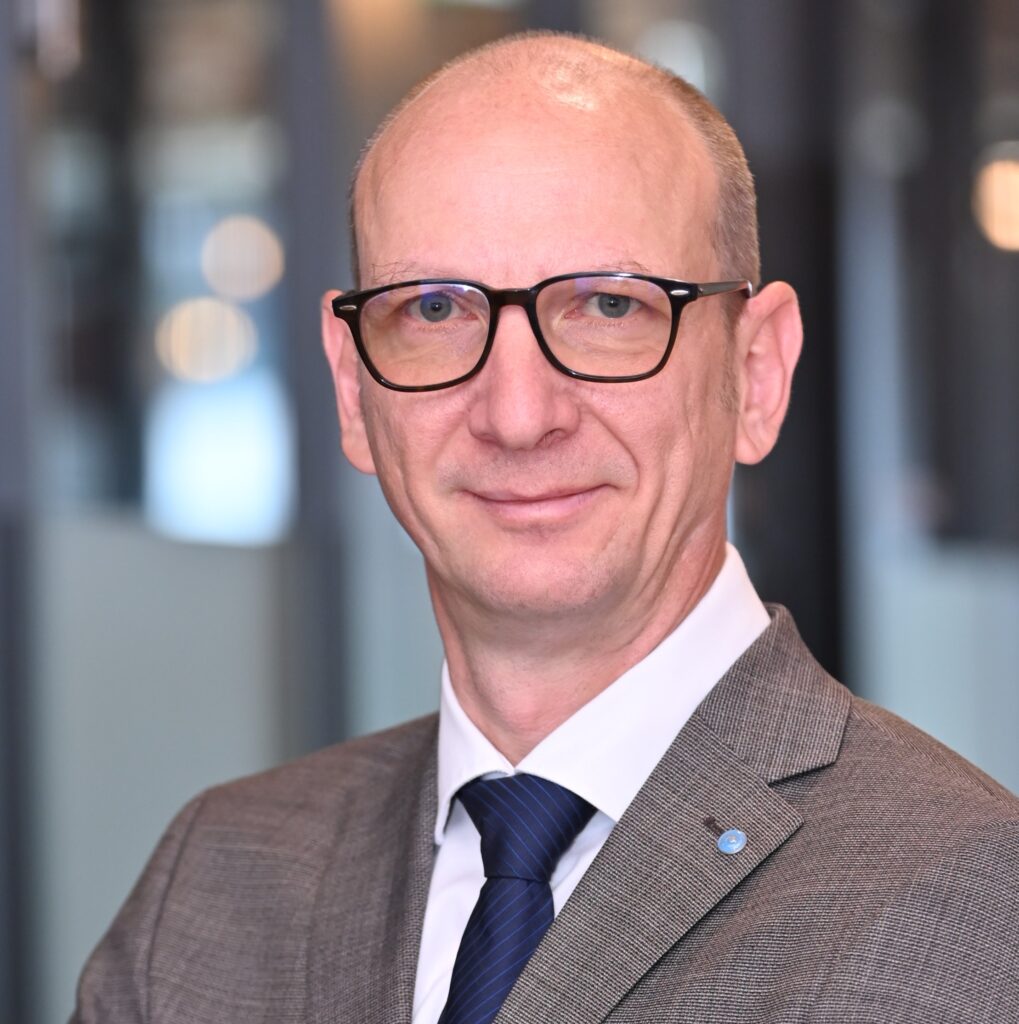
Niculae Iancu
Dr Niculae Iancu has relevant expertise in national security. He has worked in the field of military research, international military cooperation and strategic planning,
with a particular focus on NATO and defence and intelligence policy and strategy.
He is president of the Integrated Intelligence, Defence and Security Solutions Association, a Romanian NGO based in Bucharest.
Dr Iancu is a former Rector of the National Intelligence Academy. He teaches Security Studies and Risk Management at several Romanian universities.
Dr Iancu is also a mentor on strategy, risk management and business and competitive intelligence with InnovX. He shares his expertise with the private sector, striving to inspire a culture of critical thinking and systematic business analysis methods among startup and scaleup communities.

Gabriel Raicu
Vice-Rector, Research and Development, Maritime University of Constanta
Director, MARCYSCOE
Prof Gabriel Raicu is Vice-Rector for Research and Innovation of the Constanta Maritime University. He holds executive positions in several national and international cybersecurity organisations.
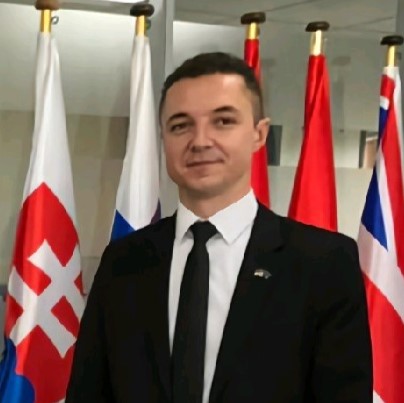
About The Event Organiser
The Maritime Cybersecurity Centre of Excellence is a leading provider of cybersecurity services and solutions for the maritime industry. MARCYSCOE mission is to enhance the cyber security resilience of the maritime sector through innovative research, expert advice, training, and education.
MARCYSCOE provides a wide range of cybersecurity services to public and private organisations in the maritime industry, including vulnerability assessments, penetration testing, incident response, and compliance assessments. MARCYSCOE experts bring together extensive experience and knowledge of the maritime industry and cybersecurity best practices.

They work closely with the university’s faculty and students to develop and deliver cutting-edge research and education programs that address the maritime sector’s complex cybersecurity challenges.
MARCYSCOE also collaborate with industry partners, governmental agencies, and other organisations to promote cybersecurity awareness, knowledge-sharing, and innovation in the maritime industry
Venue
104 Mircea cel Batran Street, Constanta, Constanta County, 900663
MARCYSCOE is based at the Maritime University of Constanta, a Romanian public university that provides bachelor and master programs for the maritime industry.
